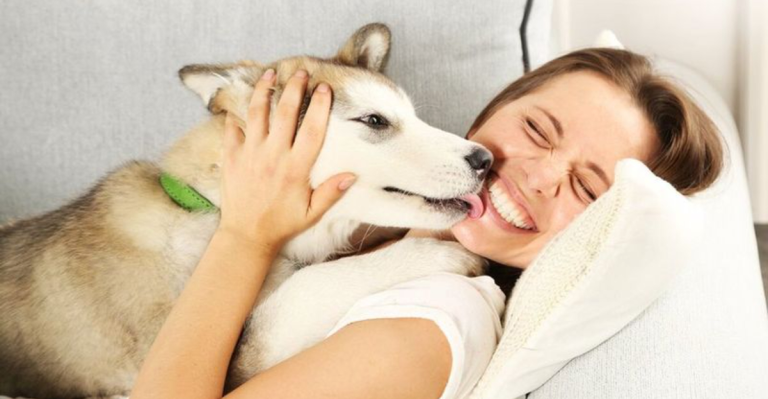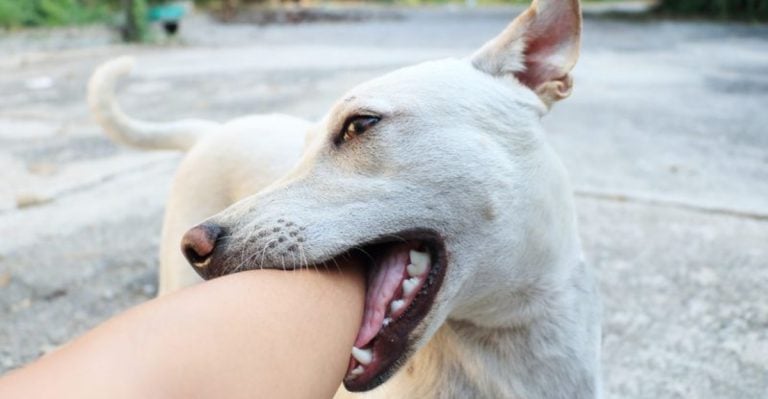Why Does My Dog Keep Licking Me? A Vet Breaks It Down
Ever wondered why your furry friend seems obsessed with licking you? Those warm, wet doggy kisses aren’t just random—they actually communicate quite a lot! As a veterinarian, I’ve studied canine behavior for years and discovered that licking serves multiple purposes in the dog world. It’s a deeply rooted instinct, not just a quirky habit.
Dogs lick as a form of affection, a greeting, a way to explore the world, and sometimes even as a method of self-soothing. From puppyhood, dogs learn to lick as part of their social behavior—starting with licking their mother and littermates. Over time, this behavior extends to their human companions. Whether your dog is licking your hands, feet, or face, there’s usually a reason behind it, and it’s not always just because they love you (though that’s often part of it!).
Understanding why your pup licks you can help strengthen your bond, reinforce positive behaviors, and even alert you to underlying issues like anxiety or health concerns. In this article, we’ll explore what licking really means, what different types of licking can indicate, and when it might be time to consult your vet. Let’s decode those slobbery signs of affection once and for all!
1. Showing Deep Affection
Dogs naturally express love through licking. This behavior starts when they’re tiny puppies, as mother dogs lick their babies to clean and comfort them. Your dog remembers this soothing sensation and transfers it to you as a sign of deep attachment.
When your pooch gives you those slobbery kisses, they’re essentially saying “I love you” in dog language. The action releases endorphins in their brain, creating a positive feeling associated with you.
This affectionate behavior is especially common when you return home after being away, reinforcing your special bond. Think of those licks as canine hugs and kisses!
2. Craving Your Salty Skin
Your skin contains natural salts and minerals that create a flavor party for your dog’s sensitive taste buds. Human skin constantly releases microscopic salt particles through sweat, even when you don’t feel sweaty.
Dogs have significantly more taste receptors dedicated to water than humans do, making them particularly attracted to salty flavors. This explains why they might target areas like your hands, arms, or face after you’ve been exercising.
Any lotions, creams, or food residue on your skin can make you even more delicious to your furry friend. Their powerful noses detect these subtle flavors long before you realize they’re there!
3. Submissive Pack Behavior
Wild wolves and dogs in packs lick the mouths and faces of more dominant members as a sign of respect and submission. Your household pup still carries these ancient pack instincts, and you’re the pack leader!
When your dog licks you, especially around your face or hands, they may be acknowledging your authority in their canine social structure. This behavior shows they trust your leadership and feel secure in their position within your family.
Some dogs display more submissive licking than others, particularly those with naturally deferential personalities or those who’ve been properly socialized to respect boundaries.
4. Seeking Your Attention
Smart dogs quickly learn which behaviors get a reaction from their humans. If your pup discovers that licking your hand or face makes you laugh, pet them, or talk to them, they’ll repeat this successful attention-getting strategy.
Many pet parents unintentionally reinforce licking by responding positively. Your dog doesn’t distinguish between positive attention (laughing, petting) and negative attention (pushing away, saying “no”) – any reaction is a win in their book!
Dogs who feel ignored or understimulated often develop more persistent licking habits. Regular playtime, walks, and mental stimulation can reduce attention-seeking behaviors.
5. Self-Soothing When Stressed
Dogs sometimes lick as a coping mechanism when feeling anxious or overwhelmed. The repetitive motion releases calming endorphins in their brain, similar to how humans might bite nails or twirl hair when nervous.
Stressful situations like thunderstorms, fireworks, or changes in routine can trigger comfort-seeking behaviors. Your dog may lick you more intensely during these times because you represent safety and security.
Watch for other signs of anxiety accompanying excessive licking – panting, pacing, whining, or destructive behaviors. These could indicate your furry friend needs additional support or possibly professional help for anxiety management.
6. Investigating Your Health
A dog’s sense of smell is approximately 10,000 to 100,000 times more sensitive than ours. Their amazing noses can detect subtle changes in your body chemistry, including hormonal shifts, blood sugar fluctuations, or even certain illnesses.
When your dog seems fixated on licking a specific area of your body repeatedly, they might be responding to chemical changes they detect beneath your skin. Some trained medical alert dogs can identify seizures, diabetic episodes, or even certain cancers through scent.
While most licking is harmless, persistent focus on one area of your body might warrant a checkup with your doctor, especially if accompanied by other symptoms.
7. Cleaning You (Yes, Really!)
Mother dogs instinctively clean their puppies by licking them thoroughly. This maternal behavior ensures pups stay clean and stimulates their bodily functions. Your adult dog still carries these grooming instincts!
When your dog licks your hands, face, or feet, they might genuinely be trying to help clean you according to their canine standards. This behavior demonstrates care and inclusion – they’re treating you as part of their family unit.
Dogs particularly target areas with strong scents like hands that have touched food or feet that have accumulated sweat and odors. Your pup’s attempts to “clean” you strengthen your bond and reinforce your place in their pack.
8. Exploring Through Taste
Dogs experience the world primarily through their mouths and noses. Licking you provides valuable sensory information about where you’ve been, who you’ve touched, and what you’ve eaten. This satisfies their natural curiosity.
Your skin carries microscopic particles that tell your dog a detailed story about your day. When they lick your hands after you return home, they’re essentially reading a chemical diary of your adventures and interactions.
Puppies are especially prone to exploratory licking as they learn about their environment. Adult dogs continue this behavior selectively, focusing on novel scents or changes in your routine that pique their interest.
9. Responding To Your Emotions
Dogs possess an extraordinary ability to read human emotions through our body language, facial expressions, and even our unique scent signatures. Research shows that humans release different chemical compounds when experiencing various emotional states.
When you’re sad, stressed, or upset, your faithful companion might increase their licking behavior as a form of comfort and emotional support. The salty taste of tears can also attract their attention if you’ve been crying.
This emotionally responsive licking demonstrates your dog’s empathy and desire to help you feel better. Many therapy dogs naturally excel at providing this type of comfort licking to humans in distress.
10. When Licking Becomes Excessive
While licking is typically harmless, obsessive licking might signal underlying problems. Compulsive behaviors can develop from boredom, anxiety, or medical issues like allergies, pain, or gastrointestinal discomfort.
Watch for concerning patterns: licking that prevents sleep or normal activities, creates raw spots on your skin, or seems uncontrollable. These could indicate your dog needs veterinary attention rather than behavioral training.
Sudden increases in licking behavior warrant investigation. Keep track of when excessive licking occurs and what might trigger it. Your observations will help your veterinarian determine whether the cause is behavioral, environmental, or medical.















